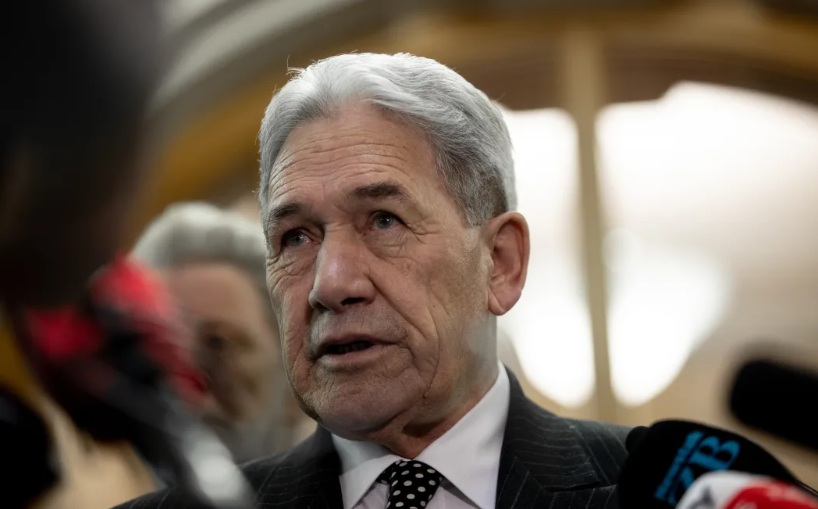Politics
Peters Condemns BSA’s Podcast Regulation as Censorship

The New Zealand Foreign Minister, Winston Peters, has criticized the Broadcasting Standards Authority (BSA) for its recent decision to regulate podcasts and online media, likening it to “Soviet era stasi” censorship. Peters expressed his concerns on social media, describing the move as “blatant overreach” and demanding an explanation for what he termed “recent outrageous action.”
He specifically questioned the BSA’s authority, stating, “Why does the Broadcasting Standards Authority think they can make up their own rules in secret meetings?” The controversy has drawn attention from various organizations, including the Free Speech Union, which issued a statement condemning the BSA’s decision to impose regulations on podcasters like Sean Plunket. The union argued that this action exceeds the BSA’s legal mandate.
The BSA’s intervention stems from a complaint regarding allegedly “unacceptable racist comments” made during a broadcast of The Platform’s Live Talkback programme on July 22, 2025. A letter from the BSA, published on The Platform’s website, indicated that the authority believes it has jurisdiction over the complaint because the programme meets the definition of “broadcasting” under the Broadcasting Act.
The Act defines a “broadcaster” as any person who broadcasts programmes, with “broadcasting” encompassing any transmission intended to inform or entertain. The BSA’s letter detailed the process to determine whether The Platform qualifies as a broadcaster, asserting that airing the relevant content constitutes broadcasting.
Plunket’s response to the initial complaint was dismissive, stating, “You Plonker, we aren’t subject to the Broadcasting Standards Authority.” His comments reflect a growing tension between online media platforms and regulatory bodies in New Zealand.
The Free Speech Union has voiced strong objections to the BSA’s actions. Chief Executive Jillaine Heather described the situation as a “serious threat to free expression in New Zealand.” She raised concerns over the BSA’s authority, questioning whether it is attempting to extend its reach into internet content. Heather emphasized that Plunket, a veteran journalist and founder of The Platform, operates entirely online due to previous conflicts with regulators and mainstream media.
“If the BSA is allowed to extend its reach into podcasts and online media, it will be policing speech it was never designed to regulate,” Heather warned. She cautioned that such regulatory overreach often begins with controversial figures, suggesting that today’s focus on Plunket could lead to broader implications for others in the future.
The Free Speech Union has urged Parliament to clarify that the BSA lacks authority over podcasts and to ensure that any future changes to broadcasting law undergo public debate, avoiding any covert actions. The BSA, Peters, and Plunket have been approached for further comments regarding this developing situation.
As the conversation surrounding media regulation continues, the implications for free speech and content creation in New Zealand remain a focal point of public concern. The outcome of this dispute may set significant precedents for how online platforms are governed in the future.
-

 World4 months ago
World4 months agoTest Your Knowledge: Take the Herald’s Afternoon Quiz Today
-

 Sports4 months ago
Sports4 months agoPM Faces Backlash from Fans During Netball Trophy Ceremony
-

 Lifestyle4 months ago
Lifestyle4 months agoDunedin Designers Win Top Award at Hokonui Fashion Event
-

 Entertainment5 months ago
Entertainment5 months agoExperience the Excitement of ‘Chief of War’ in Oʻahu
-

 Sports4 months ago
Sports4 months agoLiam Lawson Launches New Era for Racing Bulls with Strong Start
-

 World5 months ago
World5 months agoCoalition Forms to Preserve Māori Wards in Hawke’s Bay
-

 Health4 months ago
Health4 months agoWalking Faster Offers Major Health Benefits for Older Adults
-

 Lifestyle4 months ago
Lifestyle4 months agoDisney Fan Reveals Dress Code Tips for Park Visitors
-

 Politics4 months ago
Politics4 months agoScots Rally with Humor and Music to Protest Trump’s Visit
-

 Top Stories5 months ago
Top Stories5 months agoUK and India Finalize Trade Deal to Boost Economic Ties
-

 Health2 months ago
Health2 months agoRadio Host Jay-Jay Feeney’s Partner Secures Visa to Stay in NZ
-

 World5 months ago
World5 months agoHuntly Begins Water Pipe Flushing to Resolve Brown Water Issue









